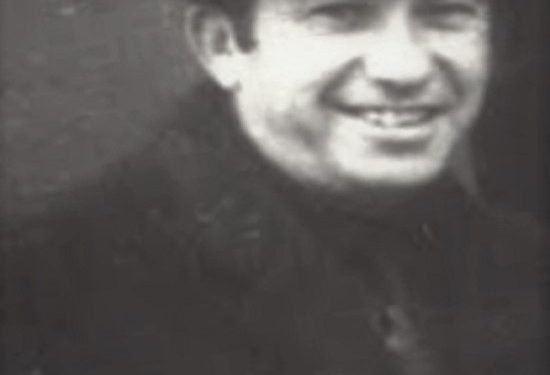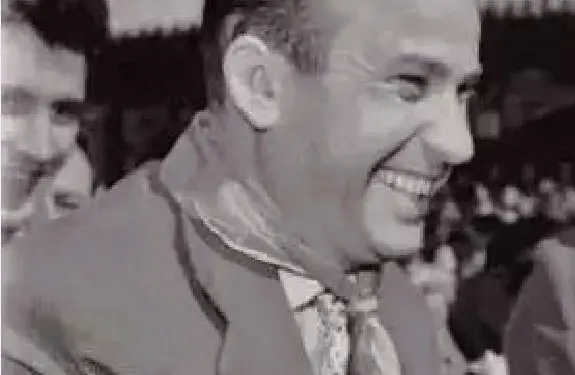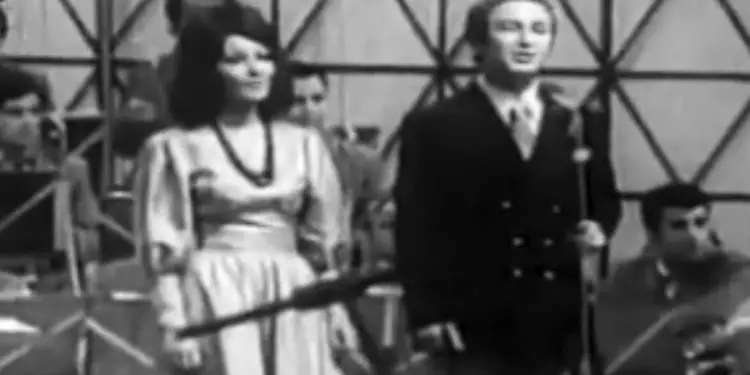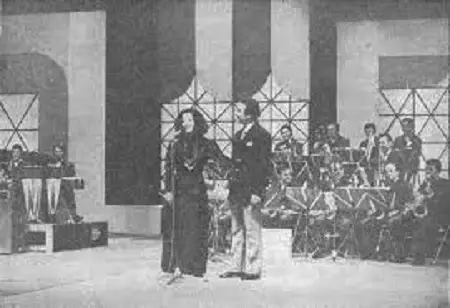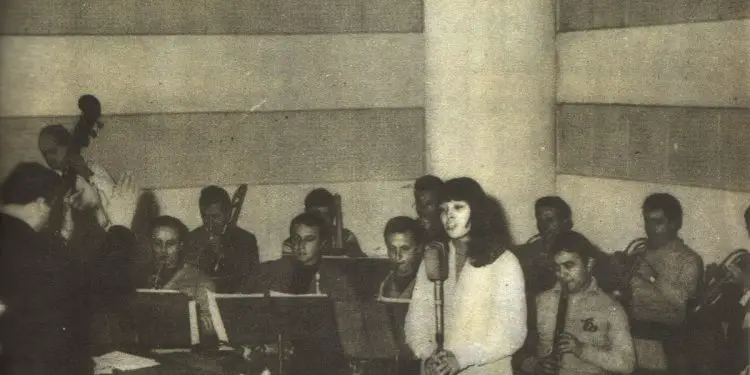From Skifter Kelliçi
Second part
Prologue
Memorie.al / It are the fourth time that I am writing about the 11th National Song Festival on Albanian Radio Television, (December 22-25, 1972), as much as I wrote some time ago about the Tirana Conference, (16- April 20, 1956). And this time for the same reason: for the lack of historical accuracy of some events related to this festival, which Ramiz Alia, the former first secretary of PPSh, after the death of Enver Hoxha, describes in the book his last “My Life” (2010), although there are objective, honest statements in it, especially when he testifies about the serious mistakes that led to the failure of the communist system in Albania, led by Enver Hoxha, for which he apologizes. But in the description of his figure, Ramiz Alia is often contradictory, especially in the chapter; “The fight against liberalism”, where it stops at the 11th Song Festival on Albanian Radio and Television (December 22-25, 1972).
Continues from last issue
-The 11th festival, the result of the artistic and social developments of the time-
In other words, the 11th RTSh Festival was not a sudden “boom”, or, to continue further with comparisons, it was not like a Martian that surprises us with its descent to earth. It was a continuation of a climate that had begun to prevail, since the end of the 60s, in our lives, especially in literature and arts. It is known that the breakdown of relations with the Soviet Union in 1961 brought Enver Hoxha closer to China. In all directions. It must also be in art.
This is why the screens of cinemas and RTS, although still an experimental center, were flooded with Chinese films in those years. Also our publications, not to mention the reading texts, where you would see pieces by Chinese authors, among which, especially, those dedicated to Lei Fen, the Chinese folk hero. From foreign literature, mainly works with revolutionary content began to be published. The same phenomenon happened with the repertoires of the Tatras, or the Theater of Opera and Ballet, etc.
At the 15th Plenum of the Central Committee of PPSh, held on October 25-26, 1965, spurred on by the Chinese influence that demanded that literary and artistic creativity become the property of the people, Mehmet Shehu managed to express himself in this way: ” …It seems to me that artistic creativity in the field of literature should not remain almost the sole monopoly of writers. Why not open the doors to the broad masses of workers, to write poems, stories, novels, criticism…”?!
Above all, the Open Letter of the Central Committee of the PPSh, the speech of Enver Hoxha on February 7, 1967, which was a monstrous call for the destruction of churches and mosques, as well as the declaration of Albania as an affected country, followed by the so-called cadre turnover, brought a great spiritual shock to the exhausted Albanian people. This blow also fell on the writers and artists, who moved to the most distant villages, to live knee to knee with the people and inspired by them, to write works without… reward!
Literature and the arts were even more oriented to the struggle against the influences of bourgeois-revisionist art. But from the end of the 60s and the beginning of the 70s, other winds began to blow in literature and arts. New works from foreign literature began to appear in bookstores. On the screens of cinemas and Albanian Radio-Television, inaugurated on November 1, 1971, films began to be shown, not only Western, but even from so-called revisionist countries, excluding the Soviet Union.
After in 1969, two employees, one from the artistic sector and the other from the technical sector, were sent for specialization in Italy, in eastern countries, such as in Bulgaria, Czechoslovakia, Romania, teams were sent to buy films and for mutual agreements, without excluding other employees of the technical sector, who went to France and Italy, for specialization. In addition, by order of the Prime Minister, Mehmet Shehu, orders were given that UEM, which produced televisions, not to close the second channel that allowed watching programs from Italian and even Yugoslav television channels.
In fact, since the number of televisions was still few, it was recommended that in workplaces where there were televisions, employees, together with their families, could watch the San Remo Festival and other RAI shows. “A little later, – writes Ramiz Alia in his book; “My life”, specifically in April 1971, Enver Hoxha had a very interesting conversation with Agim Meron, who at that time was the first Secretary of the Central Committee of the Union of Albanian Labor Youth. The essence of the conversation was that party organizations and state institutions such as RTSh, etc., should be more attentive to the youth, give more films, concerts and music, which their age required, organize more youth dance evenings , fighting the conservatism that often appeared in the attitude of the party bodies towards the youth. However, it wasn’t long before everything changed, (page 262).
In this spirit, for RTSh to have more significant improvements, it was considered reasonable that Thanas Nano, who in 1961 was appointed director of Radio Tirana, and then of RTSh, in 1961, should be replaced by Todi Lubonja, at that time the secretary of the Party Committee of the Korca district. The very fact that at the meeting organized on January 28, 1972 (for work reasons, I was not there), where Manush Myftiu, a member of the Political Bureau, came to present the new director to RTS employees. And the first secretary of the Party Committee of Tirana together with Xhaferr Spahiu, candidate of the Political Bureau and vice-chairman of the Council of Ministers, testified to the importance given to this change in the direction of the RTS.
This was also proven by the other fact that Manush Muftiu, as explained to me by my friends who participated in this meeting, said on the occasion, more or less coldly, (perhaps also because his wife, Nefoja, a noble woman, beloved and reasonable, director of Radio Tirana, had friction with her), that; Thanas Nano had worked, “but he had also made mistakes” and that Todi Lubonja was a man with advanced concepts, who would open new horizons for RTSh, letting it be understood that already the previous director was also replaced for his conservative tendencies, a fact that, as we will see below, was completely true, if we consider that he was also pedantic, in the way of management and communication with subordinates.
Of course, the replacement of Thanas Nano with Todi Lubonja was directly influenced by Ramiz Alia. This was confirmed to me by Todi himself, during the meetings I mentioned above, from the beginning of 1991. I will talk about some of the highlights of the memories I have during those meetings with Todi Lubonja in the other parts of this cycle, but, when it came to his appointment as general director of the RTS, I said to him: -‘If you had been appointed chairman of the State Committee of Physical Culture, as was said then, in the sports environment, those would not have happened that happened’.
– “It was Ramiz Alia, my friend since childhood, – he explained to me, – who insisted that it would be better for me to come to RTS. To be honest, I didn’t want to. I would be under the close supervision of Enver Hoxha again, for whom I was convinced that he did not love me, however, my acquaintance with him began in 1938, when I had him for three months, professor of French in Tirana High School. Then, he even praised me for the diligence I had shown in learning this language. Not only that, but in 1942, when I had already joined the National Liberation Movement and had gone underground, I met him in a small house in Tirana, a war base, located on ‘Isa Boletini’ street. He recognized me, his former student, and even tasked me with digging up an important document at another illegal base. But then things changed”.
After these words, Todi laughed and continued: – “In the summer of 1958, when I was secretary of the Central Youth Committee, together with a delegation of young people, Enver Hoxha, now a legendary leader, received us in his office. I think I made a mistake here. I should have been the one after the meeting, to have asked him to take a photo together with the young people, which he did. Besides, I should have been even more smiling in those moments. It seemed to me that he did not like it! In October 1960, I was part of the working group that was drafting the Resolution for the Moscow meeting, where delegations from 80 communist parties would participate along with our delegation.
After we finished the editing and returned to our homeland, I should have been more enthusiastic when I was with other friends in front of Enver Hoxha, that is, I should have been happier about the great act of our Party, which was finally separating from the Soviet dictate. In 1967, I should never have made a new layout of the ‘Voice of the People’, which was called by Enver Hoxha; “like the western newspapers” and as a result, I was transferred by order of party secretary to Korça. Yes, there in 1969, I should not have allowed the drama to be staged; ‘Njollat e marmme’, which he saw in Tirana and decided not to appear, again, even though he had won the first prize, at the National Festival…”!
However, Todi Lubonja, having the support of Ramiz Ali, started working with passion in RTSh. A man of fine culture and taste, (it was not for nothing that the famous Kadareja, before publication, occasionally gave him his works to read and appreciated his opinions), he, although he did not know closely the features of radio and television journalism, tried to bring innovation in this field. In the very frank meetings he organized with Radio and TV editors, he asked them not to hesitate in finding and using new forms of broadcasting, which, of course, was not an unknown demand. But he also gave practical examples about these forms.
Among other things, Todi Lubonja created a warm atmosphere with the employees. He didn’t expect everything to be discussed and resolved in his office, but he went to our offices and studios, where he talked cordially with us, the technicians, he was curious to know the technical processes, especially of recordings or live broadcasts, he listened to the opinions of the suggestions that we journalists and technical personnel gave him, he congratulated those who made good shows, and even, not infrequently, after the show was over, he did so by phone.
He also went to the Radio-Television cafe, drank coffee with anyone he found there, and did shakara. It was an attitude almost completely opposite, with the attitude of the previous director Thanas Nano, who never acted like this, who stood, even in such cases; “above” the collective, which never took part in an evening of dancing, going to the cinema, museum, or theater, with Radio-Television employees, or in the excursions that were organized from time to time.
Although the main attention, the Political Bureau of the Central Committee of the PPSh, had focused on Television, when Radio-Tirana broadcast 17 hours of program a day and TV only five, Todi Lubonja, once in a meeting with the editors, requested among others, that the Radio programs had a direction, where prominent personalities in the field of art, preferably skilled orators, with the presentation of the programs, interventions and conversations with other guests, would create organic connections of the shows that followed each other and, then, for Radio and Television newsrooms to unite, so that they could better help each other, an experience that was also implemented by RAI.
In order to enrich foreign news, an agreement was immediately signed with the company “Visnjuz”, which provided television news from around the world. For the first time, the songs of the European Festival, which had just ended (May 1972), were broadcast on the Radio’s music shows, which would have been a scandal for Thanas Nano. (And to think those 32 years later, in 2004, Albania would participate for the first time, but not the last, in such an event and the Albanian song would reach sixth place!)
On April 25, 1972, Todi Lubonja stopped me in the corridors of RTSh and asked me: “Hey, are you able to comment on football matches from foreign televisions?” Surprised, that this time it was not me, but the one making this proposal, I answered “Yes”. But not without reluctance. And so the next day, at 5:00 p.m., RTS broadcast from RAI, the Italy-Belgium match, which was played in Milan, (0-0), and at 8:30 p.m., from TV Belgrade, the England-Federal Republic of Germany match, (1 -3) which was played in London.
The echo was extraordinary, even from the “red dome”. One morning in June 1972, Todi Lubonja hurriedly invited him to the office and told him that his friend Enver was satisfied with the young women he had seen on TV and added that he should continue on this path. He asked me what else we could do in the field of sports. I replied that; we could broadcast the Olympic Games, which were held in Munich in the Federal Republic of Germany in August-September. “No other way,” he told me. And so it happened.
Maybe it was exaggerated because, with some exceptions, from 14.00-23.00, and even later, RTSh, combining with the news shows at 18.00 and 20.00 and with the children’s show at 18.30, broadcast all kinds of sport of the Olympics held in West Germany. But the echo everywhere in Albania, which is great. I remember that in a meeting that Pirro Kondi, then director of the Propaganda Directorate in the Central Committee, in October 1972, had with sports journalists, in which I also participated, he praised the broadcasting of these games by RTS.
And here, with the arrival of Todi Lubonja in RTSh, in the wake of these new phenomena, which had started in radio-television shows, in literature and arts, even in our poor spiritual life, the Festival of 11- of National Song. His direction was entrusted to the talented Mihal Luarasi, who, like Todi Lubonja, had transferred from Korça to the High Institute of Arts and was immediately drawn by him to RTSh, as artistic director. So, as we saw from the facts and arguments above, this festival was not a bolt from the blue…! Memorie.al
The next issue follows




